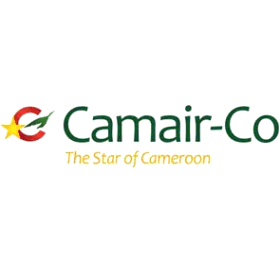CAMAIR-CO,
Cameroon’s national airline, has taken decisive action to stabilize its
operations by integrating a Boeing 737-300
into its fleet through a wet-lease agreement with Nigeria’s
NG Eagle. This strategic move comes at a
time when the majority of CAMAIR-CO’s own aircraft remain grounded,
underscoring the airline’s ongoing reliance on external partners to
maintain scheduled services across its domestic and regional
network.
The newly leased Boeing 737-300, a
28-year-old workhorse of the skies, recently underwent a comprehensive
C-check maintenance in Lagos before
entering commercial service with CAMAIR-CO. This level of maintenance
ensures the aircraft meets the strict safety and performance standards
required for passenger operations, while offering CAMAIR-CO much-needed
operational reliability.
This development highlights a
broader trend in Central and West Africa, where airlines increasingly
turn to wet-leasing as a rapid solution to fleet shortages, technical
delays, or regulatory challenges. For CAMAIR-CO, whose in-house fleet
has dwindled to just one active Boeing 737-700, the addition of a
wet-leased aircraft is crucial for sustaining route commitments,
protecting market share, and maintaining customer confidence.
Wet-leasing,
which involves renting both the aircraft and crew from another
operator, allows airlines like CAMAIR-CO to quickly deploy additional
capacity without the long lead times associated with outright purchases
or dry leases. This flexibility is especially vital for African carriers
facing fluctuating demand, limited access to capital, and complex
maintenance environments.
The partnership with NG
Eagle not only brings technical and operational support but also
demonstrates a pragmatic approach to intra-African cooperation in
aviation. By leveraging regional resources, CAMAIR-CO can ensure service
continuity while it works to resolve internal fleet issues and develop a
more sustainable long-term strategy.
For Cameroon’s
travel and tourism industry, the sustained operation of CAMAIR-CO is
essential. The airline serves as a vital link for business, government,
and leisure travelers, connecting key cities within Cameroon and
supporting regional integration with neighboring countries. The Boeing
737-300’s entry into service will enhance schedule reliability, reduce
cancellations, and provide new marketing opportunities for the carrier
and its partners in the ecosystem.
This episode also
serves as a reminder to African aviation stakeholders of the importance
of ongoing fleet renewal, robust maintenance planning, and investment in
technical capacity. While wet-leasing offers a rapid solution, it
should be paired with long-term strategies for acquiring and maintaining
modern aircraft, training local crews, and building resilient supply
chains.
As CAMAIR-CO navigates its current operational
challenges, its reliance on external leasing arrangements underscores
the need for continued reform and modernization within the airline. The
coming years will be critical as the carrier works to restore its own
fleet, improve financial stability, and regain its competitive edge in
the increasingly dynamic Central African aviation market.
For
the wider African travel sector, CAMAIR-CO’s experience offers valuable
lessons in flexibility, partnership, and the strategic use of leasing
to mitigate short-term disruptions while laying the groundwork for
sustainable growth.
